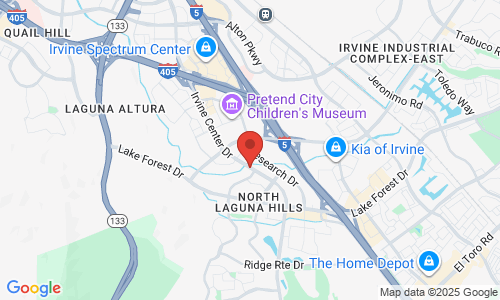Unreasonable Physical Restraint In Elder Law
Many families depend on others to care for their elderly loved ones. Unfortunately, some caregivers will take advantage of the elderly, even going so far as to abuse them. One common type of elder abuse seen in nursing homes is unreasonable physical restraint. When excessive physical restraint is used, it can cause serious injury, even permanent disability, to elderly patients.

If you suspect a loved one is the victim of unreasonable physical restraint, it is important to contact an elder abuse attorney to ensure your loved one is protected from further harm and the responsible party is held liable. Knowledgeable in unreasonable restraint in elder law, the Orange County, CA law firm of Sean M. Burke can help you get justice in the event your loved one has been abused by a caregiver. Contact our law firm today to learn more about protecting your loved one's legal rights.
When Is Restraint Appropriate to Use in a Nursing Home?
It is sometimes necessary to restrain an elderly person living in a nursing home in order to perform necessary medical care or to protect the person from injuring him or herself or other residents and staff. In other circumstances, a nursing home resident may have a history of falling out of bed and will need to be restrained to prevent additional falls. However, any time restraints are used it should be with great prudence and care to avoid abuse. Using restraints on elderly people can quickly become excessive, even when there was just cause to use restraints.
Understanding Unreasonable Physical Restraint
Unreasonable physical restraints include any physical restraints that use extreme force or are excessive, often to the point of causing injury. In some cases, unreasonable restraints may not cause immediate harm, but will lead to injury due to the length of time restraints were in use, which may include hours or even days. Unreasonable physical restraints may include arm and hand restraints, bed guardrails, tightly tucked sheets, unmovable trays, or any restraint that:
- Causes lacerations, bruises, or bedsores
- Is painful
- Causes the muscle to atrophy
- Prevents patients from socializing
- Causes humiliation
- Is used as a form of punishment
- Is used with the intent to be cruel, neglectful, or to abuse an elderly patient
- Causes harm to the patient
- Prevents the patient from eating, drinking, or accessing medication
- Is not removed after they are no longer needed
Injuries Caused by Unreasonable Physical Restraints
Injuries associated with unreasonable physical restraints may be minor to severe. Sometimes, no physical injuries will be present but a change in mood or depression may indicate that the restraints are unreasonable. Some possible injuries include:
- Bed sores
- Bruises
- Bleeding
- Lacerations
- Ulcers
- Broken bones
Contact Burke Law
It is important to act quickly when elder abuse is suspected to prevent further injuries and protect the well being of all patients in the care of a suspected abuser. If you or a loved one has been unreasonably restrained while in a nursing home or other elderly care facility, you're encouraged to contact the law firm of Sean M. Burke to learn more about your legal recourse.
